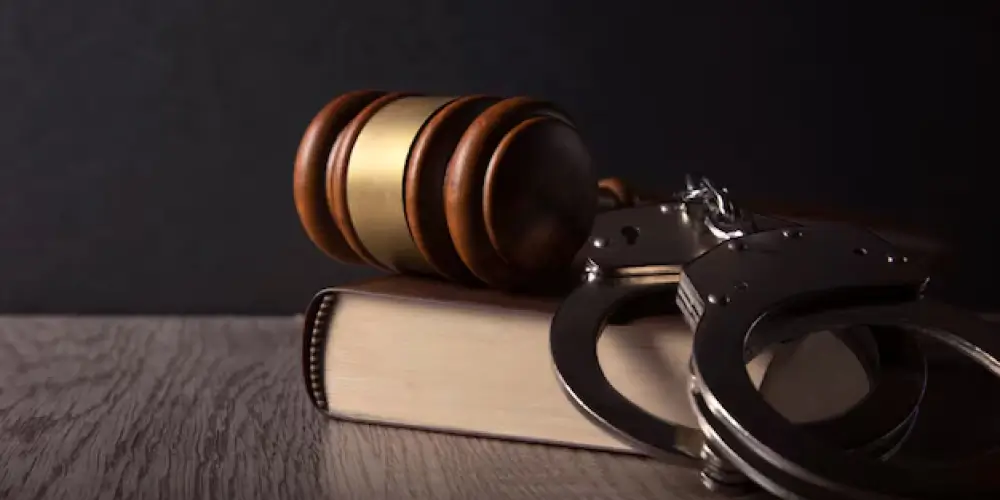

The Role of Evidence in Criminal Trials: What You Need to Know
16/07/2024 Brian Smith 2887
In the realm of criminal justice, evidence serves as the cornerstone of the trial process. Whether you're a legal professional, a defendant, or simply an interested observer, understanding the role of evidence in criminal trials is crucial. Evidence is the means by which facts are established in a court of law, and its proper handling can significantly impact the outcome of a case.
Types of Evidence
Evidence in criminal trials can be broadly categorized into several types, each serving a unique purpose in the judicial process:
-
Physical Evidence: Tangible items that can be presented in court, such as weapons, clothing, DNA samples, and fingerprints. This type of evidence is crucial in linking a suspect to a crime scene or victim.
-
Documentary Evidence: Written or printed materials, including emails, contracts, letters, and official records. These documents can help establish a timeline of events or corroborate testimonies.
-
Testimonial Evidence: Oral statements made by witnesses under oath. This type of evidence includes eyewitness accounts, expert testimonies, and statements from the defendant or victims.
-
Demonstrative Evidence: Evidence that is used to illustrate or explain other evidence, such as maps, diagrams, videos, and photographs. Demonstrative evidence helps jurors visualize the crime scene or understand complex technical details.
-
Digital Evidence: Information obtained from electronic devices, including computers, smartphones, and social media accounts. Digital evidence has become increasingly important in modern criminal trials due to the proliferation of digital communication.
The Rules of Admissibility
Not all evidence collected during an investigation is admissible in court. For evidence to be considered by a judge or jury, it must meet certain criteria established by legal rules and precedents. The primary rules governing the admissibility of evidence include:
-
Relevance: Evidence must be directly related to the case and have a legitimate connection to the facts being disputed. Irrelevant evidence is typically excluded as it can confuse or mislead the jury.
-
Reliability: The evidence must be trustworthy and reliable. For instance, scientific evidence must be based on established principles and methodologies. Hearsay, which is an out-of-court statement offered to prove the truth of the matter asserted, is generally inadmissible due to its unreliability.
-
Competence: The source of the evidence must be competent to provide it. This means that the person presenting the evidence must have the legal capacity and authority to do so. For example, a minor or someone deemed mentally incompetent may not be allowed to testify.
-
Chain of Custody: For physical and digital evidence, it is essential to establish a chain of custody, documenting who handled the evidence from the time it was collected until it is presented in court. This ensures that the evidence has not been tampered with or contaminated.
-
Exclusionary Rules: Certain evidence, even if relevant and reliable, may be excluded if it was obtained in violation of the defendant's constitutional rights. For example, evidence obtained through an illegal search and seizure is typically inadmissible under the Fourth Amendment.
The Role of the Judge and Jury
In a criminal trial, the judge and jury have distinct but complementary roles regarding evidence. The judge acts as the gatekeeper, determining the admissibility of evidence based on the rules of evidence and legal precedents. During pretrial hearings, the judge may exclude certain evidence if it fails to meet the admissibility criteria.
Once the trial begins, the jury's role is to evaluate the admitted evidence and determine its weight and credibility. Jurors must consider the evidence presented by both the prosecution and the defense, weigh conflicting testimonies, and assess the overall reliability of the evidence. Ultimately, the jury's assessment of the evidence will inform their verdict of guilty or not guilty.
The Impact of Forensic Science
Forensic science has revolutionized the way evidence is analyzed and presented in criminal trials. Techniques such as DNA analysis, fingerprinting, ballistics, and digital forensics have enhanced the accuracy and reliability of evidence. Forensic experts play a crucial role in interpreting scientific evidence and presenting their findings to the court in a comprehensible manner.
However, forensic evidence is not infallible. Cases of forensic malpractice and the limitations of certain forensic techniques have led to wrongful convictions. It is essential for legal professionals to critically evaluate forensic evidence and ensure that it meets the standards of scientific rigor and reliability.
The Role of Expert Witnesses
Expert witnesses are individuals with specialized knowledge, skills, or expertise in a particular field relevant to the case. Their role is to provide the court with an informed opinion on complex matters that are beyond the common knowledge of the jury. Expert witnesses can clarify technical details, interpret evidence, and offer insights that can significantly influence the jury's understanding of the case.
For example, a forensic pathologist might testify about the cause of death in a homicide case, while a digital forensics expert might explain how digital evidence was recovered and analyzed. The credibility and clarity of an expert witness's testimony can have a profound impact on the jury's perception of the evidence.
The Challenges of Evidence in the Digital Age
The digital age has introduced new challenges in the collection, preservation, and presentation of evidence. Digital evidence, such as emails, text messages, and social media posts, is often ephemeral and easily altered. Ensuring the authenticity and integrity of digital evidence requires specialized tools and techniques.
Moreover, the sheer volume of digital data can be overwhelming. Legal professionals must sift through vast amounts of information to identify relevant evidence, raising concerns about privacy and data protection. The legal system continues to evolve to address these challenges and establish best practices for handling digital evidence.
The role of evidence in criminal trials is multifaceted and critical to the pursuit of justice. From establishing the facts of a case to influencing the jury's verdict, evidence serves as the foundation upon which criminal trials are built. Understanding the types of evidence, the rules of admissibility, and the impact of forensic science and expert witnesses is essential for anyone involved in the criminal justice system. As technology continues to evolve, the legal community must adapt to ensure that evidence is handled with the utmost care and integrity, safeguarding the rights of all parties involved.
Recent Blogs
Building a Diversified Inves ...
26/01/2025 1833
Integrating AI and Machine L ...
24/01/2025 1394
Health Insurance Regulations ...
22/01/2025 2448
Recognizing Signs of Mental ...
20/01/2025 2473
Understanding Employers' Leg ...
18/01/2025 1412
Trending Blogs
Interest Rates: How They Aff ...
20/06/2024 12712
Client Retention: Building S ...
20/06/2024 10761
Introduction to Common Law: ...
21/06/2024 9828
Common Types of Criminal Charges
02/03/2024 8997
Corporate Finance Law: Raisi ...
04/06/2024 8728











